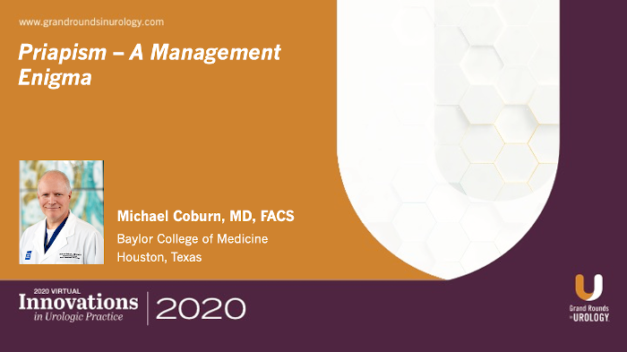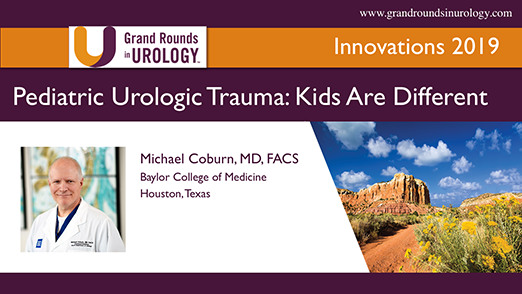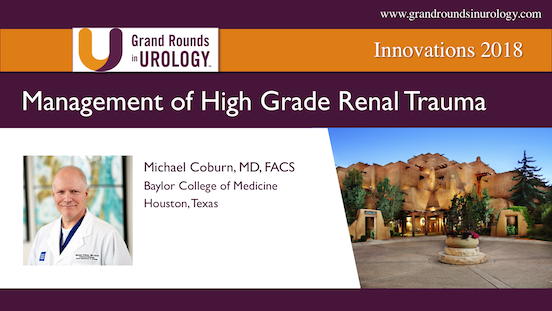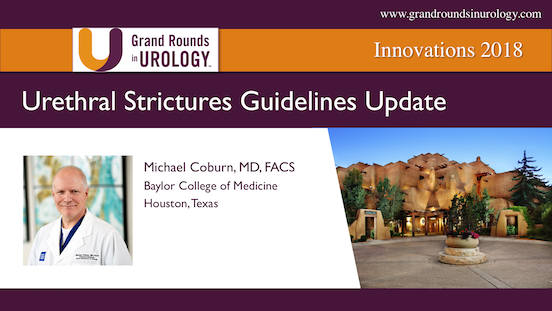Priapism: A Management Enigma
Michael Coburn, MD, FACS, Professor and Russell and Mary Hugh Scott Chair of the Department of Urology at Baylor College of Medicine, discusses priapism and the American Urological Association’s (AUA) guidelines on managing the illness. He gives an overview of priapism, outlining differences between ischemic, non-ischemic, recurrent, primary, and secondary priapism, and discusses a range of contributing risk factors. Next, Dr. Coburn reviews study data on the different qualities of ischemic and non-ischemic priapism, explaining that the latter often is chronic and characterized by less rigidity in the penis, while ischemic priapism tends to be characterized by a fully rigid, very painful erection which contains abnormal cavernous gases. He then discusses treatment recommendations for various forms of the disease, ranging from oral medication for intracavernosal-caused priapism to complex specialty treatment for priapism related to underlying medical conditions. Dr. Coburn concludes by recommending that physicians use the AUA guidelines to create a treatment algorithm for priapism, making sure that if a deviation is made that it is well documented and explained.
Read More




